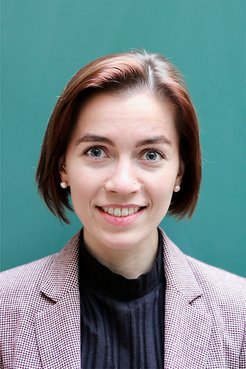Support for research on wind energy
Claudia Brunner from the MPI-DS receives Minerva Fast Track Fellowship
The Max Planck Society supports Claudia Brunner's research project on the wakes of wind turbines with a Minerva Fast Track Group. At the Max Planck Institute for Dynamics and Self-Organization (MPI-DS), Brunner, who holds a PhD in mechanical engineering, investigates turbulence to optimize the efficiency of sustainable energy production in wind farms. The heart of the project is the wind tunnel at the MPI-DS, which can accurately reproduce typical flow conditions found in wind farms.
Claudia Brunner began her studies at Stanford University (California, USA), where she received both a Bachelor of Science in Mechanical Engineering and a Bachelor of Arts in International Relations in 2017. At the time, she was already interested in renewable energy and climate change mitigation. Brunner then moved to Princeton University (New Jersey, USA) for her master's degree in mechanical and aerospace engineering. There, she also defended her dissertation "Unsteady aerodynamics with applications for wind turbines" in May 2022. In August 2022 she became a postdoctoral researcher in the Department of Fluid Physics, Pattern Formation and Biocomplexity at the MPI-DS.
Fluid dynamics research for wind turbines

As a mechanical engineer, Brunner aims to optimize sustainable energy production. Wind turbines are of key importance in this context. To operate them efficiently, a precise understanding is needed of the flows across the rotor blades as well as the wake that develops behind a wind turbine. How exactly do turbines in a wind farm influence each other? How can energy production be optimized? A better understanding of the typical flows across wind turbines can help predict the resulting power generation more accurately. In addition, it can enable the development of new turbines that produce energy more efficiently and last longer.
To study these flows, Claudia Brunner uses the high-pressure wind tunnel in the Max Planck Turbulence Facility at the MPI-DS. This tunnel can at small scale accurately reproduce a wide range of flow conditions found at wind turbines. "We have a unique wind tunnel here in Göttingen that can be used to conduct these experiments," Brunner reports. "On top of that, there is amazing expertise and technical infrastructure at the institute that will support the research project in the coming years," she continues enthusiastically. Furthermore, Claudia Brunner investigates how wind energy can be better represented in techno-economic models that are used to inform policy decisions.
Funding the project for the next years
Claudia Brunner managed to impress the Max Planck Society (MPG) with her research proposal. She will receive financial support for the next three years as part of the Minerva Fast Track Program: the institute will provide funding for her as well as for an additional position for a PhD student working in the project. For this program, the Chemical-Physical-Technical Section of the MPG selects two young female scientists each year to support them on their academic career path. At the MPI-DS, she is supported by Director Eberhard Bodenschatz, who is an expert in the field of fluid physics. "I sincerely congratulate Claudia Brunner on her successful application and I am really looking forward to the exciting research projects ahead," Bodenschatz says. As a mentor, he will accompany her over the next few years as she builds up her research group.
"I am happy that this program explicitly gives young female scientists the opportunity to start a career in a technical field," Brunner concludes.
